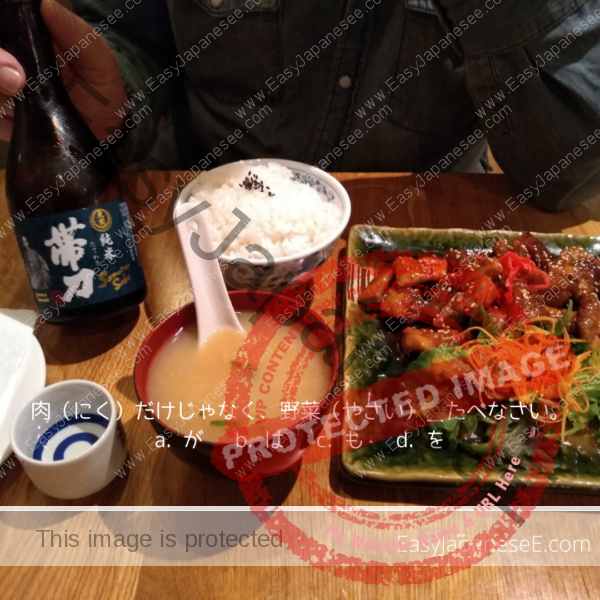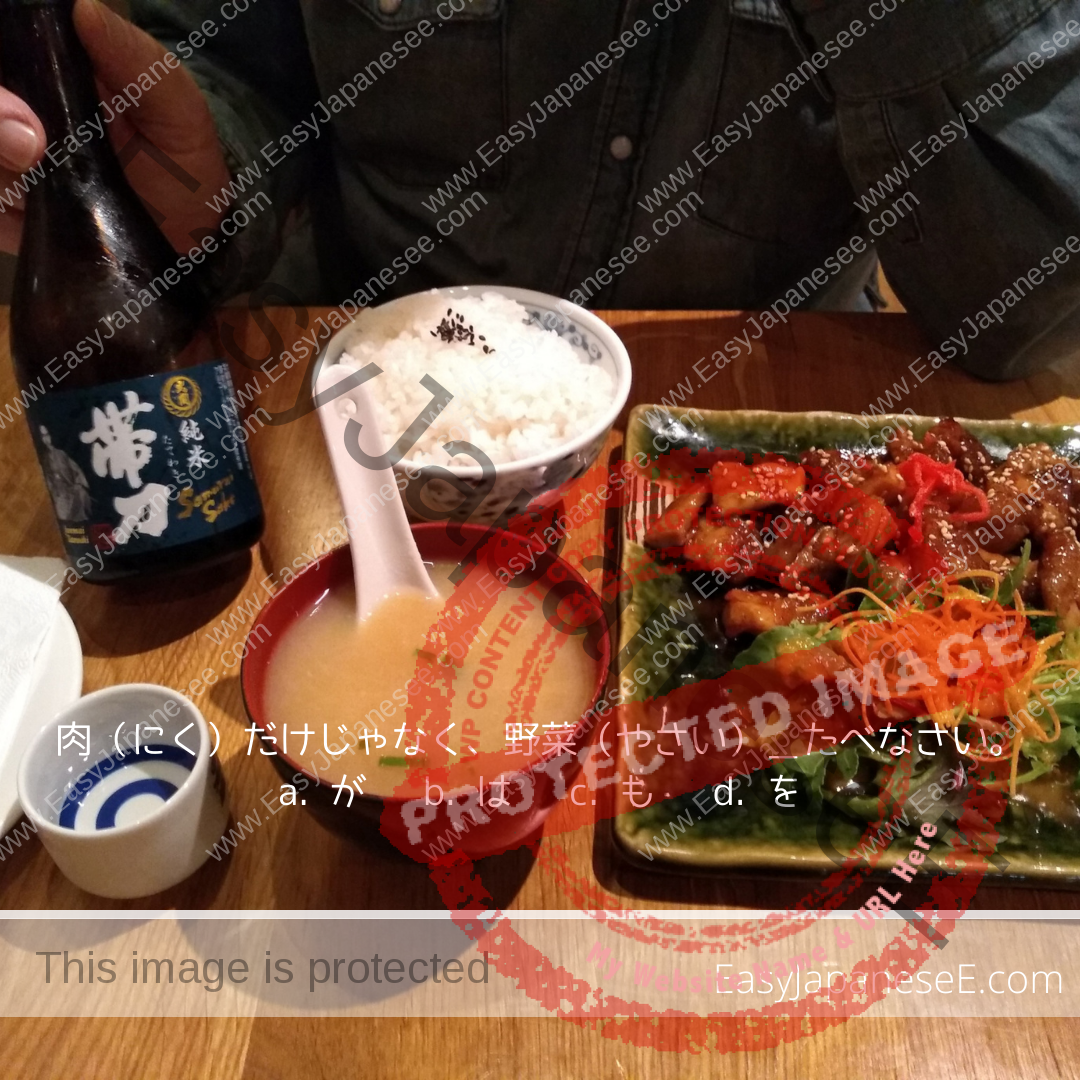
Today’s Grammar Point: ~だけじゃなく/~だけでなく
~だけじゃなく/~だけでなく means “not only ~” so inevitably a “but also” part which is indicated with the particle も follows.
Connections
- [noun] + だけじゃなく/だけでなく
- [いadj] + だけじゃなく/だけでなく
- [なadj] + だけじゃなく/だけでなく
- [plain form verb] + だけじゃなく/だけでなく
Examples
肉だけじゃなく、野菜も食べなさい。(today’s caption)
Eat not only meat but also vegetables.日本語だけじゃなく、フランス語も話せます。
I can speak French as well as Japanese.あのケーキはおいしいだけなく、見た目もかわいいです。
That cake is not only delicious but also looks cute.ブラウン先生はやさしいだけじゃなく、教えるのも上手です。
Mr. Brown is not only kind, but also good at teaching.ジョンさんはスポーツが得意なだけじゃなく、成績も優秀です。
John is not only good as sports, he also has excellent grades.この 野菜は新鮮なだけじゃなく、無農薬です。
This vegetable is not only fresh, but also organic.ジョンさんはたくさん 食べるだけじゃなくて、たくさんお酒も飲みます。
John not only eats a lot, but also drinks a lot.エイミーさんはピアノを習っているだけじゃなくて、スイミングスクールにも通っています。
Amy is not only learning the piano, she also attends a swimming school昨日は宿題を済ませただけじゃなくて、明日の予習もしました。
Not only did I finish my homework yesterday, but I also prepared for tomorrow’s lessons.ジョンさんは宿題をしなかっただけじゃなく、授業にも遅れてきたので、職員室に呼び出されました。
Not only did John not do his homework, but he was late for class, so he was called into the staff room.
Answer to Today’s Question: c. も
~だけでなく is always used with も although the phrase with も may not be expressed.
If you liked this article, please share it with your friends using the social media buttons below. Also, your clicks on ads on this page help covering the cost of running this website. Your support will be much appreciated.

